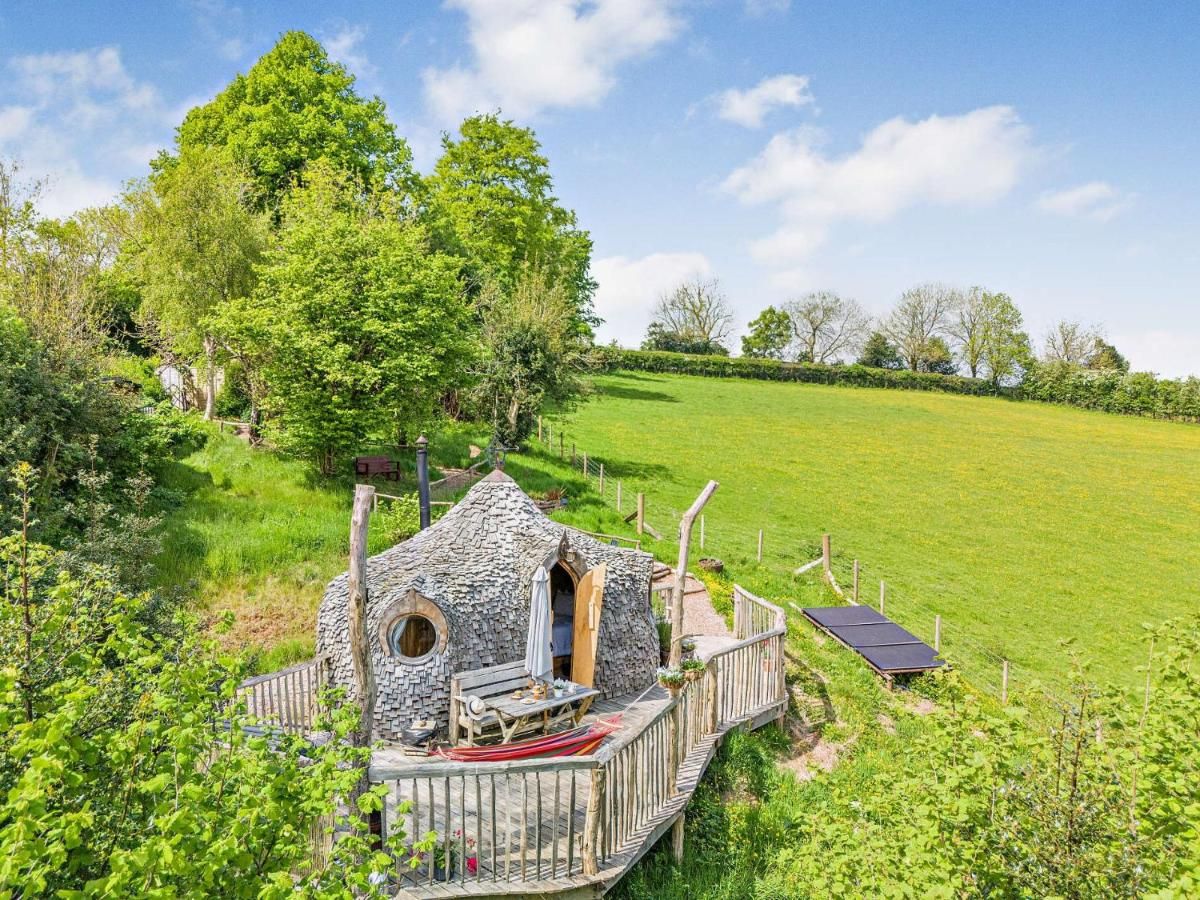Let’s be honest: we all adore holidays. But for a growing number of UK travellers, the idea of another chaotic resort or carbon-loaded international flight is losing its appeal. Alternatively, a rise can be seen in eco tourism, digital detox holidays, and offbeat retreats that nourish both the soul and the planet.
A recent study shows that 76% of travellers desire more sustainable travel. This marks the beginning of a movement where your getaway can do some good for the earth, local communities, and your well-being.
The Hidden Costs of Holiday Heaven
While we’re sipping poolside cocktails or shopping for fast fashion abroad, our holidays may be harming the world we’re trying to escape from. Traditional vacations carry a heavy carbon price. UK government data shows aviation (mostly leisure flights) alone accounted for about 8% of the UK’s greenhouse gas emissions in 2019, and 7% in 2022. Add long-haul cruises, fast-fashion tourist shopping, and energy-hungry hotels, and it’s clear mass tourism can be an eco-disaster. The UK Parliament investigated sustainable tourism, looking at both the impacts of tourism and travel on the environment and how these can be reduced.. And it’s not just flights. Mass tourism creates waste, pollutes beaches, damages landscapes, and puts pressure on local communities. From overflowing bins in national parks to plastic-filled coastlines, the impact is real and growing.
A 2019 study estimated that UK tourism generated 23.9 million tonnes of waste (4% of all UK waste). In fact, once voted the UK's 'Best' beach town now suffers from tourist littering, says a local resident. Even flights and hotels leave fuel trails, beaches are filled with discarded plastic (1.3M tonnes from tourism in 2019, and sensitive ecosystems suffer. As one Guardian reporter put it, holidaymakers often forget “about the environmental impact our holidays are having”, from foul beaches to carbon-spewing flights. Holiday bliss comes with hidden costs that UK consumers and policymakers can no longer ignore.
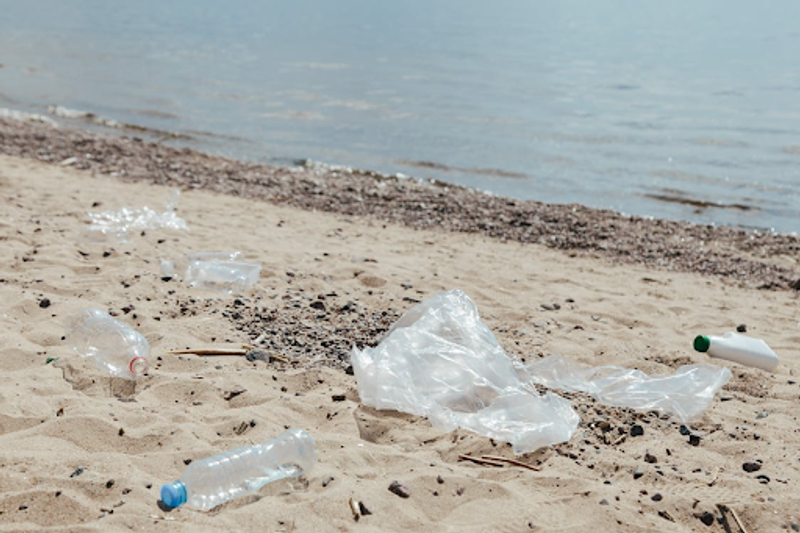
UK Travellers Demand Green Getaways
Here’s the good news: more people want to change how they travel. UK holidaymakers are actively shifting away from cookie-cutter vacations towards eco holidays that deliver relaxation and responsibility.
Want to join the movement? Start with The Only Sustainable Travel Guide You’ll Ever Need – a step-by-step resource packed with practical advice for planning eco-friendly getaways.
So, what’s replacing the typical trip abroad?
- Wooden Cabin stays in meadows and forests
- Tranquil couple retreats to countryside cottages
- Soaring searches for cabins with a Jacuzzi near me
- Rewilding experiences in restored natural landscapes
- Breaks that promote sustainable travel with eco-lodges and local cuisine
These aren’t just vacations, they’re digital detox holidays, soul-nourishing escapes, and an investment in the environment and yourself.
These digital detox vacations help people disconnect from their screens and reconnect with nature.
In fact, a YouGov poll revealed that:
- 21% of Brits are “very willing” to spend more on sustainable goods
- 64% would pay up to 10% extra for greener alternatives
44% are ready to spend more on truly eco-friendly trips
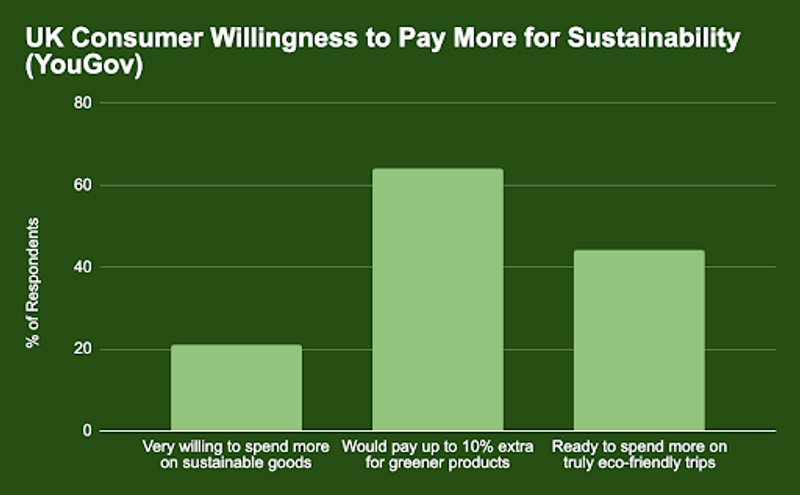
Digital Detox & Rewilding Retreats Are Booming
The demand for wellness, space, and off-grid calm is transforming UK tourism.
Wooden Cabin breaks are not only stylish and cosy, they’re low-impact and high-rewarding. Cabins with Jacuzzis are trending as UK travellers seek out spa-like escapes without the air miles. Rewilding holidays offer serenity in restored natural landscapes where visitors enjoy birdsong, wildflowers, and clean air. Digital detox holidays are on the rise. Whether you're travelling solo, with a partner, or as a family, eco-tourism now offers a richer experience: one that swaps traffic for tranquillity.
Explore our list of the Top 10 Glamping Pods in the UK for the perfect balance of comfort and conservation.
Sustainable Travel: A Rising Priority
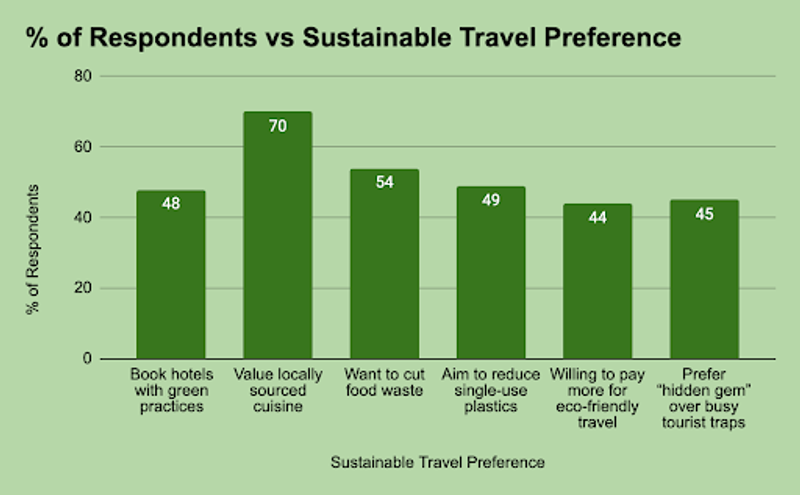
Recent travel surveys tell a clear story:
- 48% are more likely to book hotels with green practices.
- 70% value locally sourced cuisine.
- 54% want to cut food waste.
- 49% aim to reduce single-use plastics.
- 44% of respondents would be willing to pay more for eco-friendly and sustainable travel options.
- 45% prefer “hidden gem” destinations over busy tourist traps.
“The numbers don’t lie - Eco holidays are not just a trend. They’re a transformation in how we travel.”
Why are UK travellers choosing Eco Escapes?
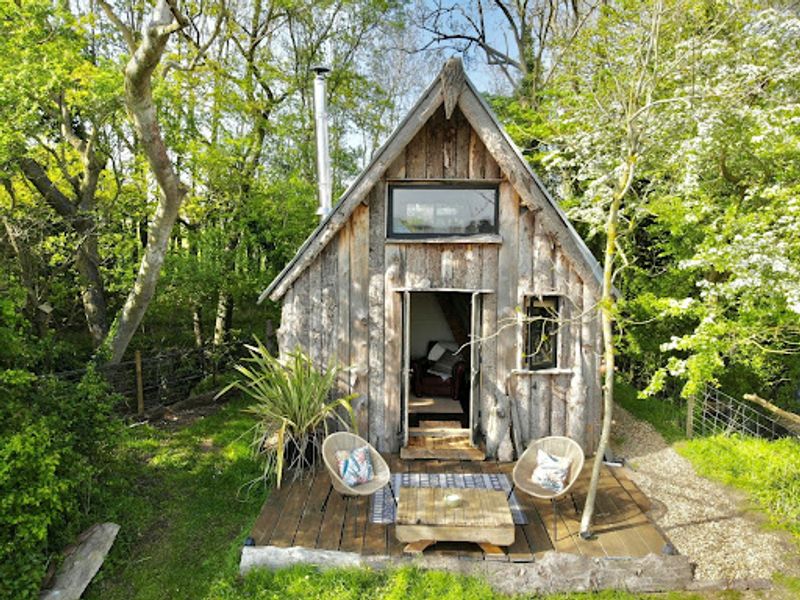
Think about it: Wouldn’t you rather wake up in a wooden cabin, surrounded by birds, trees, and the sound of a nearby stream, instead of car horns and packed hotels?
Travel trends echo these attitudes. UK travellers are increasingly embracing a slower, more mindful approach to tourism, with 59% showing interest in slow travel and 78% prioritising relaxation as their main reason for taking domestic breaks. Interestingly, two in five also seek out hidden gems, avoiding overtourism in favour of quieter, lesser-known destinations. Another sign: travellers are embracing digital detox. These shifts, valuing wellbeing, local culture, and off-the-beaten-path experiences, are reshaping tourism.
- Sustainability counts: Nearly half of UK travellers now prefer hotels with strong eco-credentials.
- Local impact: Most say local, seasonal food and supporting communities are important.
- Wellness and space: 81% seek wellness (spas, nature) on breaks, and 45% actively choose “hidden gem” destinations over overcrowded hotspots.
- Paying for quality: About 44% of respondents would spend extra on truly green travel options.
These figures show a clear appetite for greener getaways, and it’s spilling into real bookings.
Industry and Government Are Going Green Too
Recognising this shift, the UK government and tourism industry are responding with incentives:
- The Great British Rail Sale cut a million train fares by half to encourage low-carbon travel.
- The Jet Zero Strategy commits to emissions-free domestic flights by 2040.
- The upcoming Sustainable Aviation Fuels Bill will support home-grown biofuels to reduce aviation’s carbon footprint.
Even local councils are getting involved by funding carbon-neutral cottages, improving cycling routes, and promoting rewilding holidays and eco stays.
In short, the sector is beginning to align economics with ecology. Rather than boosting visitor numbers at any cost, a new Tourism Action Plan emphasises sustainability, rural economies, and preserving landscapes. The message is clear: green travel isn’t just a buzzword, it’s a national priority.
The Eco Escape Experience: Nature as Wellness
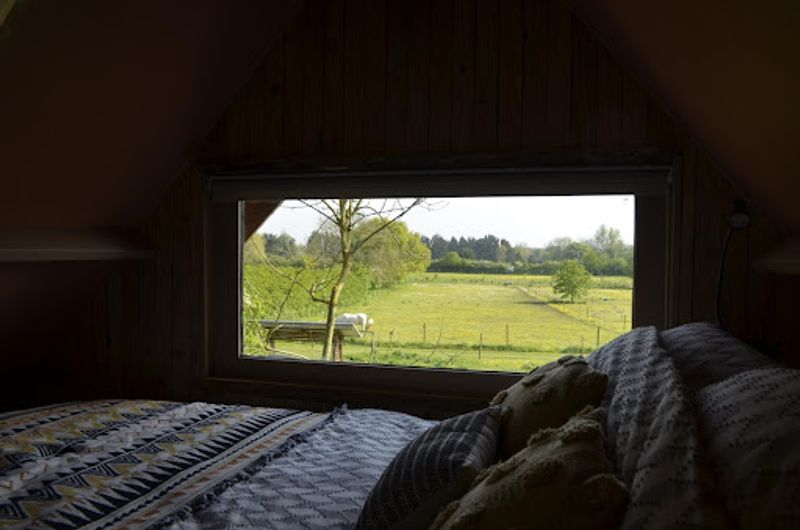
Beyond policy, the essence of an Eco Escape is an experience. Imagine waking up in an off-grid cabin, windows opening to a meadow, where mornings start with birdsong instead of car horns. These trips are as much about wellness as they are about sustainability.
Read "From Hotels to Glamping: The Sustainable Shift" to understand how accommodations are rethinking luxury, impact, and the guest experience.
In our screen-addicted age, peace in nature is profoundly healing. Research shows just 120 minutes in nature per week (even broken into short visits) significantly boosts health and wellbeing. No wonder wellness travel is booming. Forest bathing (the Japanese “shinrin-yoku”) – gently wandering in the woods to engage the senses – has gone mainstream. Studies link it to reduced stress hormones, better attention, and a stronger immune system. Tour operators now offer guided nature retreats and outdoor yoga by design. A recent survey reported 81% of affluent UK travellers want on-holiday wellness (spa, hiking, yoga), and 78% say simply “rest and relaxation” is their top luxury holiday aim.
Even the informal push to unplug reflects this thirst for simplicity. Recent reports note that “digital detox” breaks are trending: in one study, 27% of travellers planned to use their phones less on holiday. Eco lodges often go a step further, encouraging or even enforcing no-wifi zones so guests can fully immerse themselves in nature. The payoff is palpable. Visitors returning from off-grid retreats frequently describe being “reluctant to turn the phone back on,” having rediscovered calm under starry skies.
Forest walks, birdwatching, star-gazing, or simply listening to a stream – these simple pleasures release endorphins and shift perspective. As a Harvard health report observes, our “pull toward the natural world” is innate, and even a few minutes under trees can leave us calmer and clearer.No wonder eco-escapes market themselves for peace of mind. They promise more than lower bills; they offer revitalisation of body and soul.
Boosting Local Economy and Conservation
When you travel close to home and spend locally, more of your money stays in the UK instead of leaking to foreign tour operators or airlines. As UK tour operator Rabbie’s puts it: by exploring Britain, “you support the local economy and create better places for people to live and visit”. Staying in a family-run stay, buying produce from a local farm shop, or hiring a local guide means your holiday finances directly help British jobs and businesses.
More Than Just a Holiday
An Eco Escape is more than a trip; it’s a conscious choice to travel with purpose.
Whether you're booking a wooden cabin, planning a digital detox holiday, or searching for cabins with a hot tub, you’re doing more than relaxing; you’re reducing your footprint and enriching lives.
The era of thoughtless tourism is ending. UK travellers are realising that their holiday matters. An Eco Escape, whether it’s a woodland spa weekend, a solar-powered lodge, or a community-run farm stay, is more than a holiday; it’s a choice to travel kindly. As industry boss Stewart Moore of EarthCheck puts it: sustainability is “a core priority” for today’s holidaymakers.
Supporting Local, Protecting Nature
When you go for a holiday in the UK and stay local:
- Your money goes to family-run inns, farm shops, and local guides
- You help fund conservation and rewilding projects
- You create jobs in rural communities
- You enjoy real, homegrown experiences – not cookie-cutter resort packages
In short, Eco Escapes don’t just feel better, they do better. For example, in Wales, couples are booking off-grid yurts, and in Scotland, families are exploring solar-powered crofts. This isn’t about giving up comfort. It’s about finding a deeper kind of luxury, one that leaves nature better than you found it.
For you, this means a new kind of travel. But this is the future. One day you might trade Ibiza for the Isle of Mull; another, a Mediterranean cruise for a kayak on a northern loch. You’ll leave gadgets behind more often, savour farm-to-table meals, and swap Airbnb with Eco-stays run by locals. You’ll step into forests with your children, and teach them to love birds and wildflowers as much as Wi-Fi. And you’ll return home not just rested, but with warm feelings, knowing you just made your land more beautiful and pristine for your coming generations to enjoy just like you enjoy it.
In the end, Eco Escapes aren’t about compromise, they’re about enrichment. They promise to preserve the very landscapes that protect us while giving each traveller a deeper, more meaningful break. That’s why, for a growing number of UK holidaymakers, the future of travel is green, local, and real.
“Travel Is Evolving. Are You Coming With It?”
